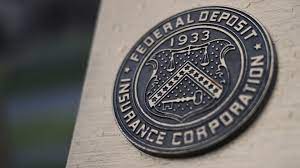FDIC Documents Reveal Circle And Sequoia As SVB’s Top Depositors
- Documents released by the FDIC revealed the top depositors at the failed Silicon Valley Bank.
- Venture capital giant Sequoia and stablecoin issuer Circle were among SVB’s top depositors.
- The FDIC went past its $250,000 deposit insurance and provided covers of up to $1 billion for the bank’s top clients.
- The latest revelations came after the regulator mistakenly released unredacted documents related to SVB’s collapse.
Documents from the Federal Deposit Insurance Corporation (FDIC) have revealed the identities of the top depositors at Silicon Valley Bank, the ill-fated crypto-friendly bank that was shut down by the California Department of Financial Protection and Innovation (DFPI) in March this year following liquidity and solvency concerns.
FDIC Provided $1 Billion Backstop To Sequoia Capital
According to a report by Bloomberg, documents from the Federal Deposit Insurance Corporation showed that venture capital giant Sequoia Capital and stablecoin issuer Circle Internet Financial were among the top depositors at Silicon Valley Bank. Other high-profile clients in the failed bank’s top 10 list included Chinese tech firm Kanzhun, Altos Labs, Marqueta Inc, and Roku Inc. USDC issuer Circle was the largest depositor, with an exposure of over $3.3 billion. Sequoia held over $1 billion with the failed lender.
The FDIC, which only insures deposits up to $250,000, decided to guarantee accounts over $250,000 when SVB was shut down by regulators. Interestingly, the regulator covered Sequoia’s $1 billion deposit with the failed bank. Kanzhun Ltd, which had a deposit of $902 million, also got a backstop for more than $900 million from the banking regulator. According to Bloomberg, the insurance to the deposits of high-profile SVB clients prevented a “catastrophic blow” to the tech and crypto sectors. However, the FDIC provided excessive insurance to high-profile clients that were “in no real danger”.
The identities of Silicon Valley Bank’s top depositors were revealed after the FDIC accidentally released an unredacted document related to the bank’s collapse. The document was released in response to a Bloomberg News Freedom of Information Act request by the media house.
Source: Read Full Article



